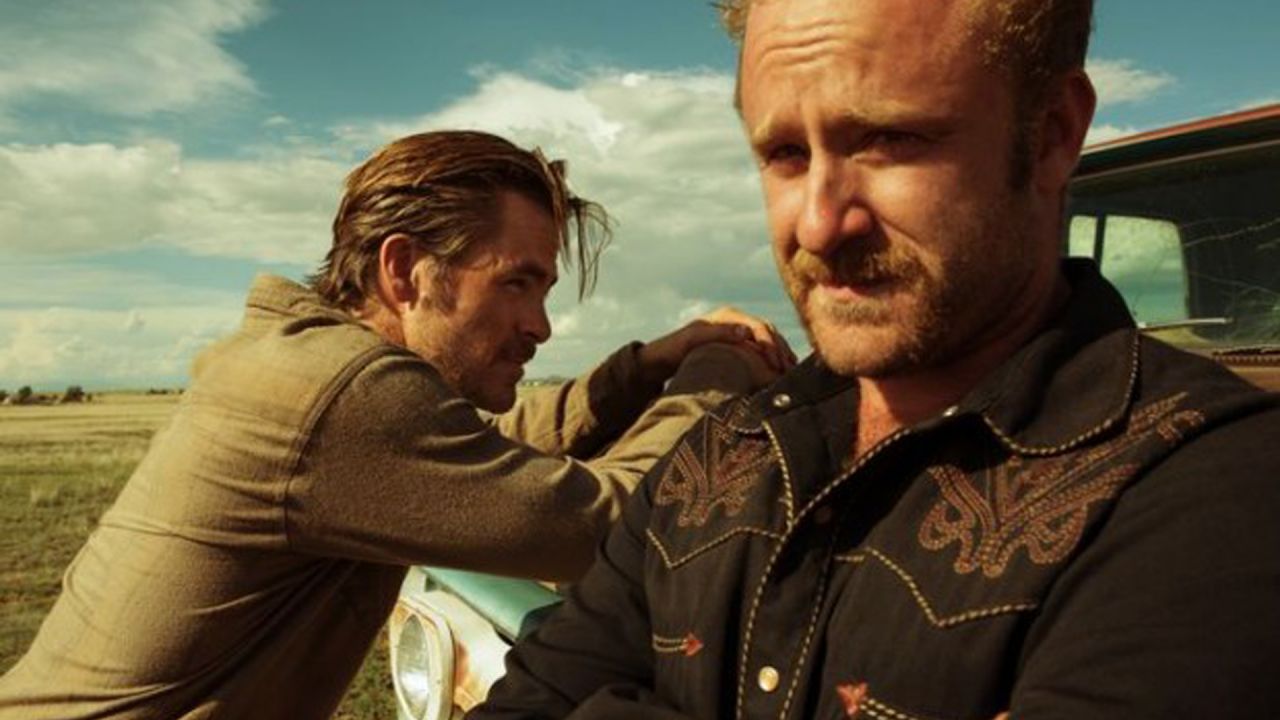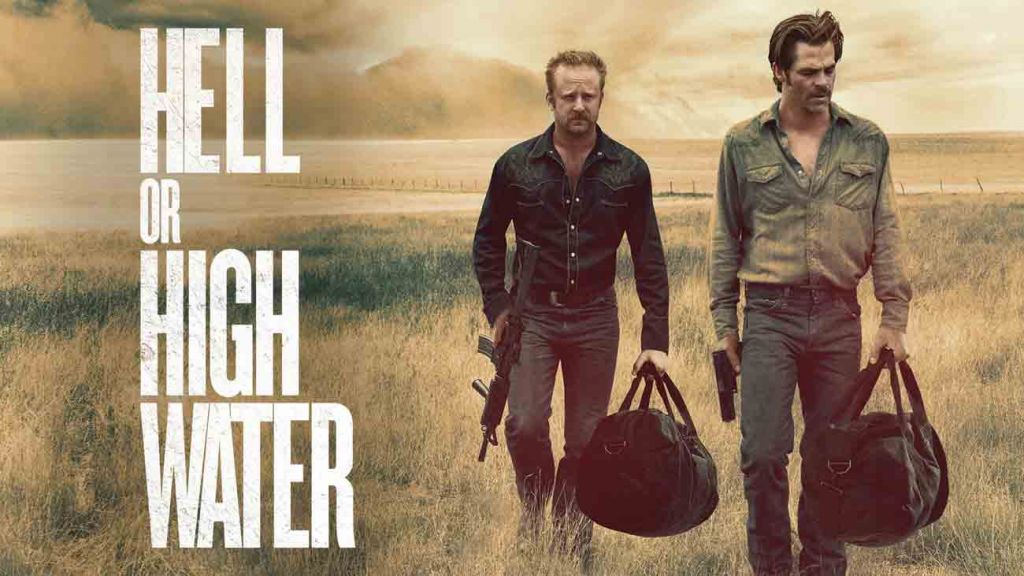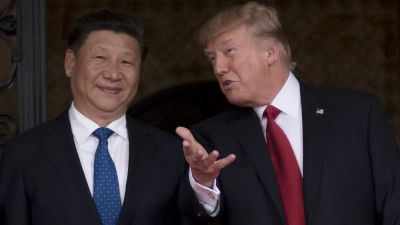
Chris Pine and Ben Foster star as brothers Toby and Tanner in Hell or High Water. (CBS Films)
Political reporters and pundits this election season have confessed to being flummoxed by the Donald Trump groundswell, which has led to head-scratching, soul-searching and navel-gazing as they try to figure out just what it is that Trump has been tapping in the national consciousness.
This is a delicate operation. Journalists can hammer away at Trump all they want, calling him every name in the book. But when it comes to diagnosing Trump’s supporters, they turn to mush.
More often than not, journalists are becoming apologists — you don’t criticize your customers — clearly fretting that it would be elitist to damn the racism, nativism, sexism and hatefulness of many of the Trumpistas, though, in truth, it may be even more elitist to coddle them as if they were too dumb to know better.
The result has been that the press attributes the rage of Trump’s supporters to economic distress and a sense of sociological dislocation. His supporters aren’t bad people, we are told. They are simply frustrated people, whose frustrations, granted, manifest in some pretty ugly ways. But it is becoming clearer that it isn’t just economics or sociology that peeves them. It is something larger and more inchoate — a fusion or confusion, of a myriad of things — not least of which is a sense of disempowerment.
They may have been suppressing their anger for a long time because, you could conjecture, they knew it was socially unacceptable until Trump came along to make it acceptable. It reminds me a bit of those Bosnian Muslims and Croats in the former Yugoslavia who lived peacefully side by side with their Serbian neighbors, only to discover that when the lid blew, those same neighbors would just as soon kill them as say hello to them.
I think the reason journalists have had such a hard time analyzing the wrath Trump hath wrought is that what ails the country isn’t reducible to a few figures or pat analysis or reporting at all. As I wrote last week, the best diagnostic tool may be art, not social science. In that vein, some folks in the media have pointed to Hell or High Water, a new, unexpectedly popular independent film from writer Taylor Sheridan (Sicario) and Scottish director David McKenzie, as a work that helps explain the malaise rustling through the nation.

Ben Foster and Chris Pine star as brothers Tanner and Toby in Hell or High Water. (CBS Films)
I think they are right — up to a point. Decades from now, it may be the best way to understand, if not the Trump phenomenon, then at least the dust from which it has sprung.
Hell or High Water isn’t a political movie in any overt sense, although the title could certainly apply to this year’s presidential campaign. It has been called a “neo-Western” because it takes the lineaments of the classic Western and updates them to contemporary Texas. Two brothers, loud-mouthed Tanner (Ben Foster) and pensive Toby (Chris Pine), go on a bank-robbing spree — not big banks, but small-town banks in a chain called Texas Midlands. They are relative amateurs — Tanner got caught and went to prison for a previous spree — and there is little malice behind their activity. Meanwhile, a soon-to-be-retired Texas Ranger, played with lumbering nonchalance by the irreplaceable Jeff Bridges, and his Native American partner, played by Gil Birmingham, are on the trail of the thieves. The pace isn’t frenetic. Somnambulant is more like it. Nobody in this film seems to be in much of a hurry. Time is agonizing.
Spoiler alert: Stop here if you don’t want to know the engine behind the robberies.
Why the thefts? We learn that the boys’ bedridden mother had taken a reverse mortgage on her parched cattle ranch — from Texas Midlands — after which Chevron found oil on the property. But the mother has died, and the bank is about to foreclose. The only way the boys can save the ranch is by paying off the mortgage and back taxes. Hence the robberies. Toby sees the irony: They’re robbing Texas Midlands to pay Texas Midlands.
From that synopsis, you could easily misread the film as a populist cri de coeur against corporate greed and corruption and of ordinary folks’ helplessness in the face of implacable forces. That undersells the movie. The point isn’t that the brothers get screwed over by a system that is rigged for the wealthy — “You look like the kind of guy who might foreclose,” Bridges quips to a banker — but that they are trapped in an existential web of which greed and corruption are only strands. They live within bleakness. Something happened to America. Something that once seemed to work for us no longer does. Many of us feel defeated.
That’s why the tone of the film is anything but edgy or angry, even though anger is the dominant tone of the Trump movement. It is elegiac. Loss suffuses the movie. Its West Texas landscapes are vast, arid and empty. The paint-peeling billboards along the highways bear promises that are empty too: “Fast Cash,” “Debt Relief.” Graffiti on one wall says: “Three tours in Iraq but no bailout for people like us.” The towns are abandoned, ghostly. Everything and everyone seems weatherbeaten or just plain beaten. Even the bank-robbing scheme isn’t designed to enrich the brothers.
For Tanner, a directionless hellion, it is more of a lark — just something to do between swilling beers. For Toby, it is a way to secure the future for his two sons, who now live with his estranged wife, so they won’t wind up aimless like him. Poverty is “like a disease,” Toby says. “It infects everyone you know. But not my boys.”
This is politics of a different sort than the daily grind we see. We hear repeatedly that Americans — especially older, white Americans, feel the country is slipping away from them, and there have been reviews of the film that see it as an elegy for a once prosperous and hopeful America now gone, just as Trump calls for a clawback for that lost America.
And yet the lament might not really be for that past America as much as for the myth of hopefulness and the ideal of community that helped feed it — that is, belief rather than reality. Again and again in the film, we see that the country has charged on heedlessly while people are left behind, used up. “I’m racing a river of fire with a herd of cattle, and I wonder why my kids won’t do this s**t for a living,” cracks a cowboy the Rangers meet on the highway.
For many of the film’s characters, there never was much to be hopeful about, and the real polarization in the movie (and perhaps for the country) is not between left and right, but between those few who know how to game the system and the many more who don’t. (The film makes explicit the cycle in which white settlers usurped the Native Americans and now crafty whites have usurped less-crafty ones.) Or the polarization might just be among all Americans, each of whom has been taught that capitalism is looking out for yourself. “You know what Comanche means?” asks a Comanche of Tanner, after Tanner shovels in chips at the end of a poker game. Then he answers dryly, “Enemy of all.” To which Tanner says, “Well, then I’m a Comanche.”
Hopelessness, atomization, a sense of loss — in the broadest context these might be called the wellsprings of the Trump candidacy. To say so, may, if I may coin a word, “artify” the Trumpistas’ discontent in the same way some pundits have “economified” that discontent, providing them with excuses and sympathy. Hell or High Water could be accused of “artifying” too, of freighting a small domestic economic crisis with existential gloom. Richard Brody of The New Yorker blog calls it a “bad” movie for just that reason. He thinks it is far too schematic, too self-conscious, too deliberate. For him, it wears its weight uncomfortably.
But it isn’t the film’s schema that rings true. It’s the tone, which also provides the movie’s political heft. Trump supporters are not enervated like the film’s characters. If anything, they are viciously energized. They seem to hate the system less than they hate the people they perceive to be benefiting from the system, and they want revenge. Yet the country generally — the other 60 percent of us or so — seems to feel that America is spent. It isn’t vengeance we want. It’s hope.
Just look at those right track/wrong track polling numbers. Politicians, all politicians, love to say that America’s best days are ahead of her. Americans suspect that isn’t really true anymore. Hell or High Water speaks to that secret recognition. It isn’t really about banks or oil or the discontented. It’s about being lost with no way home, which is why it helps explain the predicament we are in better than any political column I have read this year.




